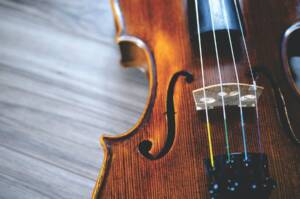Navigating Copyright Laws as a Musician: Tips and Tricks

Copyright laws play a crucial role in protecting the rights of musicians and ensuring that they are properly compensated for their creative works. These laws grant exclusive rights to copyright owners, allowing them to control the use and distribution of their music. In this blog post, we will explore the basics of copyright protection for musicians, including what can be copyrighted in music and the exclusive rights granted to copyright owners. We will also discuss the importance of registering your music with the Copyright Office, how to determine if your music infringes on copyrights, and best practices for obtaining permission to use others’ work. Additionally, we will delve into the role of fair use in music copyright law, protecting your music online through DMCA takedown notices, negotiating licensing agreements, and what to do if you’re accused of copyright infringement. Finally, we will discuss the importance of staying up-to-date with copyright law changes and provide resources for musicians to navigate copyright laws and protect their music careers.
Understanding the Basics of Copyright Protection
Copyright is a form of intellectual property protection that grants exclusive rights to creators of original works. In the context of music, copyright protects musical compositions (the underlying melody and lyrics) as well as sound recordings (the actual recorded performance). These rights allow copyright owners to control how their music is used, reproduced, distributed, performed, and displayed.
The purpose of copyright protection is to incentivize creativity by providing creators with the exclusive right to profit from their works. By granting these exclusive rights, copyright laws encourage musicians to continue creating new music and ensure that they are properly compensated for their efforts.
The Importance of Registering Your Music
While copyright protection exists automatically upon creation of a musical work, registering your music with the Copyright Office provides additional benefits and protections. Registering your music establishes a public record of your ownership and can be used as evidence in court if someone infringes on your copyrights.
To register your music, you will need to complete an application and submit a copy of the work you wish to register, along with the appropriate filing fee. The Copyright Office provides detailed instructions and resources on their website to guide you through the registration process.
How to Determine if Your Music Infringes on Copyrights
Copyright infringement occurs when someone uses, reproduces, distributes, performs, or displays a copyrighted work without permission from the copyright owner. Determining if your music infringes on copyrights can be complex, as it requires analyzing the similarities between your work and the copyrighted work in question.
There are several tools and resources available to help musicians determine if their music infringes on copyrights. These include online databases that allow you to search for registered copyrights, music recognition software that can compare your music to existing works, and legal professionals who specialize in copyright law.
Best Practices for Obtaining Permission to Use Others’ Work
In some cases, you may want to use a portion of someone else’s work in your own music. This could include sampling a small portion of a song or incorporating a recognizable melody into your composition. However, using others’ work without permission can lead to copyright infringement.
To avoid copyright infringement, it is important to obtain permission from the copyright owner before using their work in your music. This can be done by contacting the copyright owner directly and requesting permission. It is recommended to do this in writing and keep a record of all correspondence.
The Role of Fair Use in Music Copyright Law
Fair use is a legal doctrine that allows for limited use of copyrighted material without permission from the copyright owner. In the context of music, fair use may apply when using copyrighted material for purposes such as criticism, commentary, parody, or education.
Determining whether a particular use qualifies as fair use involves analyzing four factors: the purpose and character of the use, the nature of the copyrighted work, the amount and substantiality of the portion used, and the effect of the use on the potential market for the copyrighted work. It is important to note that fair use is a complex and fact-specific analysis, and it is recommended to consult with a legal professional if you are unsure whether your use qualifies as fair use.
Protecting Your Music Online: DMCA and Takedown Notices
The Digital Millennium Copyright Act (DMCA) is a U.S. copyright law that provides a framework for addressing copyright infringement on the internet. The DMCA includes provisions for copyright owners to send takedown notices to online platforms hosting infringing content.
If you discover that your music is being used without permission on a website or social media platform, you can file a DMCA takedown notice to have the infringing content removed. The process typically involves sending a notice to the platform’s designated agent, providing information about the copyrighted work and the infringing material, and requesting its removal.
Tips for Negotiating Licensing Agreements
Licensing agreements are contracts that grant permission to use copyrighted music in exchange for payment of royalties or other fees. These agreements are important for musicians who want to license their music for use in films, commercials, video games, or other media.
When negotiating licensing agreements, it is important to clearly define the scope of the license, including how the music will be used, where it will be used, and for how long. It is also important to negotiate fair compensation for your music and ensure that you retain ownership of your copyrights.
Copyright Infringement: What to Do if You’re Accused
If you receive a copyright infringement notice accusing you of using someone else’s work without permission, it is important to take prompt action to address the situation. Ignoring the notice or failing to respond can lead to legal consequences.
First, carefully review the notice and determine if there is any merit to the claim. If you believe you have a valid defense, it may be necessary to consult with a legal professional to discuss your options. If you determine that you did infringe on someone else’s copyrights, it is important to take responsibility for your actions and work towards resolving the issue.
Staying Up-to-Date with Copyright Law Changes
Copyright laws are constantly evolving, and it is important for musicians to stay informed about changes that may impact their rights and obligations. This can include changes in the duration of copyright protection, new court rulings that interpret copyright law, or updates to international copyright treaties.
There are several resources available to help musicians stay up-to-date with copyright law changes. These include industry publications, legal blogs, and organizations such as the Copyright Alliance and the Recording Academy, which provide information and advocacy on copyright issues.
Navigating Copyright Laws to Protect Your Music Career
In conclusion, copyright laws are essential for musicians to protect their creative works and ensure that they are properly compensated for their efforts. Understanding the basics of copyright protection, registering your music, determining if your music infringes on copyrights, obtaining permission to use others’ work, and staying up-to-date with copyright law changes are all important steps in navigating copyright laws and protecting your music career. By following best practices and seeking legal guidance when needed, musicians can ensure that their rights are respected and their music is protected. It is crucial for musicians to take proactive steps to comply with copyright laws and safeguard their music careers.





